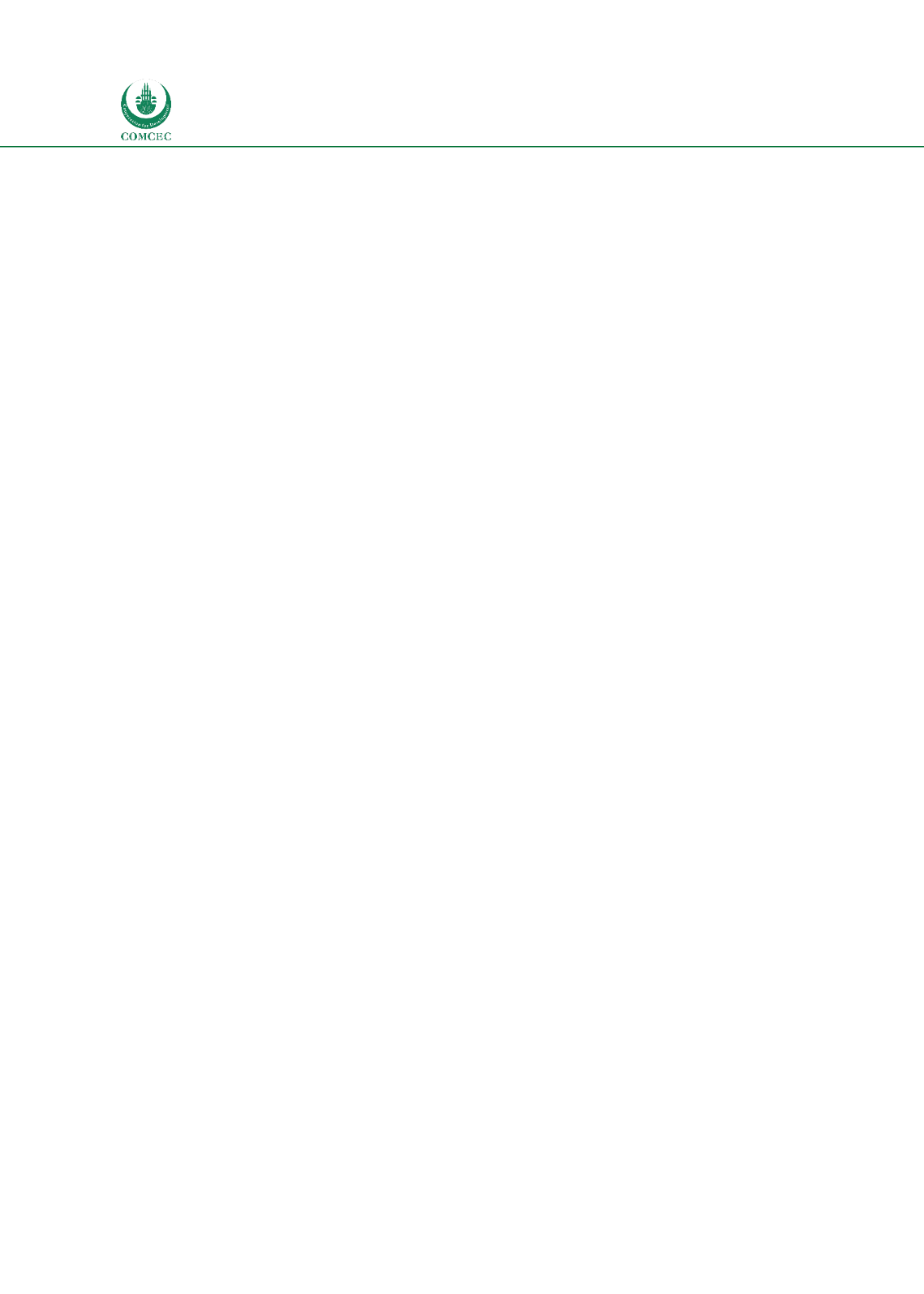

National and Global Islamic Financial Architecture:
Problems and Possible Solutions for the OIC Member Countries
130
Conseil Regional de L’Epargne Publique et Des Marches Financiers
(CREMPF) controls all the
activities related to capital markets in general and the regional stock exchange for WAEMU
Bourse Regionale des Valeurs Mobileres
(BRVM) in particular. Located in Abidjan, the
conventional financial infrastructure of BRVM is quite strong. The volume of operations in the
capital market, however, is not that significant compared to the Johannesburg Stock Exchange.
There are no specific regulatory frameworks for Islamic capital markets.
4.9.3. Shariah Governance Framework
Despite the fact that Islamic finance institution can be licensed under the current law, there are
no regulatory requirements for Shariah supervision at the financial institution level in banking,
takaful or capital markets sectors. There are no central Shariah supervisory boards or
guidelines regulating SSB for Islamic financial institutions. However, the Central Bank has
recently selected an advisor to elaborate a complete set of rules regarding the matter.
AAOIFI/IFSB Shariah governance standards are neither required nor taken into consideration
by the Central Bank.
4.9.4. Liquidity Infrastructure
A set of prudential rules enunciates the means by which banks and microfinance institutions
should operate. These rules include abiding by a liquidity ratio that applies to both
conventional and Islamic banks. The national branches of central bank located in all eight
countries receive monthly notes regarding the sector. Hence, banking authorities managed to
put in place infrastructures that guarantee transparency and follow up. There are no interbank
money markets for Islamic financial institutions. The only existing money market uses interest
rates in the conventional banks. Liquidity management instruments and LLOR for Islamic
financial institutions are also nonexistent.
4.9.5. Information Infrastructure and Transparency
Accounting and Auditing Framework/Transparency and Disclosure
The current accounting system used in the country is OHADA which are accounting and
auditing standards in line with international IFRS but covering the specifics of the WAEMU
countries. Even though OHADA lacks the specificities of Islamic banking, takaful or capital
markets, it is applicable to both conventional and Islamic banks. The Central Bank, in its effort
to strengthen the financial sector, requires financial institutions to produce quarterly and
annual reports. Other than reviewing financial figures provided, it monitors the financial
institutions and gives the appropriate orientations.
An accounting system in line with AAOIFI standards and covering the specifics of the OHADA
norms has not been considered yet. Even though there are no specific dispositions for IFIs or
sukuk issuance regarding AAOIFI and IFSB standards, the conventional set of laws has strong
requirements for transparency and information disclosure regarding financial institutions in
general and conventional capital markets instruments in particular. Islamic finance
instruments fall under the same set of laws.
















